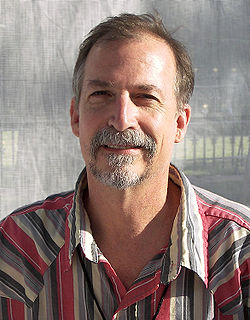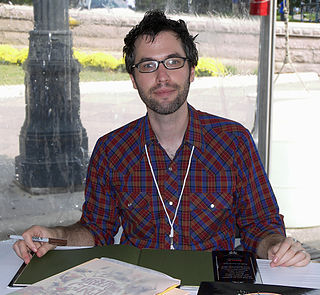A Quote by Karin Tidbeck
Some stories I write in Swedish, some in English. Short stories I've almost exclusively written in English lately, mostly because there's such a small market for them in Sweden and it doesn't really pay either. So, the translation goes both ways. What also factors in is that I have a different voice in English, which means that a straight translation wouldn't be the same as if I'd written it in English originally.
Related Quotes
I had the advantage, that I know Swedish. So I had the Swedish book and I had a lot of English translations, and German translations, and I did everything to make the best English translation of August Strindberg's Miss Julie I could. And then, there I went. "Oh! I think she's thinking this, but I think she should say it!" And so on. It's wonderful to do that.
One of the things I love about translation is it obliterates the self. When I'm trying to figure out what Tu Fu has to say, I have to kind of impersonate Tu Fu. I have to take on, if you will, his voice and his skin in English, and I have to try to get as deeply into the poem as possible. I'm not trying to make an equivalent poem in English, which can't be done because our language can't accommodate the kind of metaphors within metaphors the Chinese written language can, and often does, contain.
There is an old Italian proverb about the nature of translation: "Traddutore, traditore!" This means simply, "Translators-traitors!" Of course, as you can see, something is lost in the translation of this pithy expression: there is great similarity in both the spelling and the pronunciation of the original saying, but these get diluted once they are put in English dress. Even the translation of this proverb illustrates its truth!
Translated literature can be fascinating. There's something so intriguing about reading the text second hand - a piece of prose that has already been through an extra filter, another consciousness, in the guise of the translator. Some of my favorite writers who have written in English were doing so without English being their first language, so there's a sense of distance or of distortion there, too. Conrad. Nabokov. These writers were employing English in interesting ways.
We do not for example say that the person has a perfect knowledge of some language L similar to English but still different from it. What we say is that the child or foreigner has a 'partial knowledge of English' or is 'on his or her way' towards acquiring knowledge of English, and if they reach this goal, they will then know English.
I think I succeeded as a writer because I did not come out of an English department. I used to write in the chemistry department. And I wrote some good stuff. If I had been in the English department, the prof would have looked at my short stories, congratulated me on my talent, and then showed me how Joyce or Hemingway handled the same elements of the short story. The prof would have placed me in competition with the greatest writers of all time, and that would have ended my writing career.
YOU have no room to laugh, that's all. I'm not doing any worse with Boovish than you did with English.' Get off of the car,' J.Lo huffed. 'I am an English superstar.' Uh-uh. There's no comparison. 'Gratuity' in written Boovish has seventeen different bubbles that all have to be the right size and in the right place. 'J.Lo' in written English only has three letters, and you still spelled it 'M-smiley face-pound sign.



































